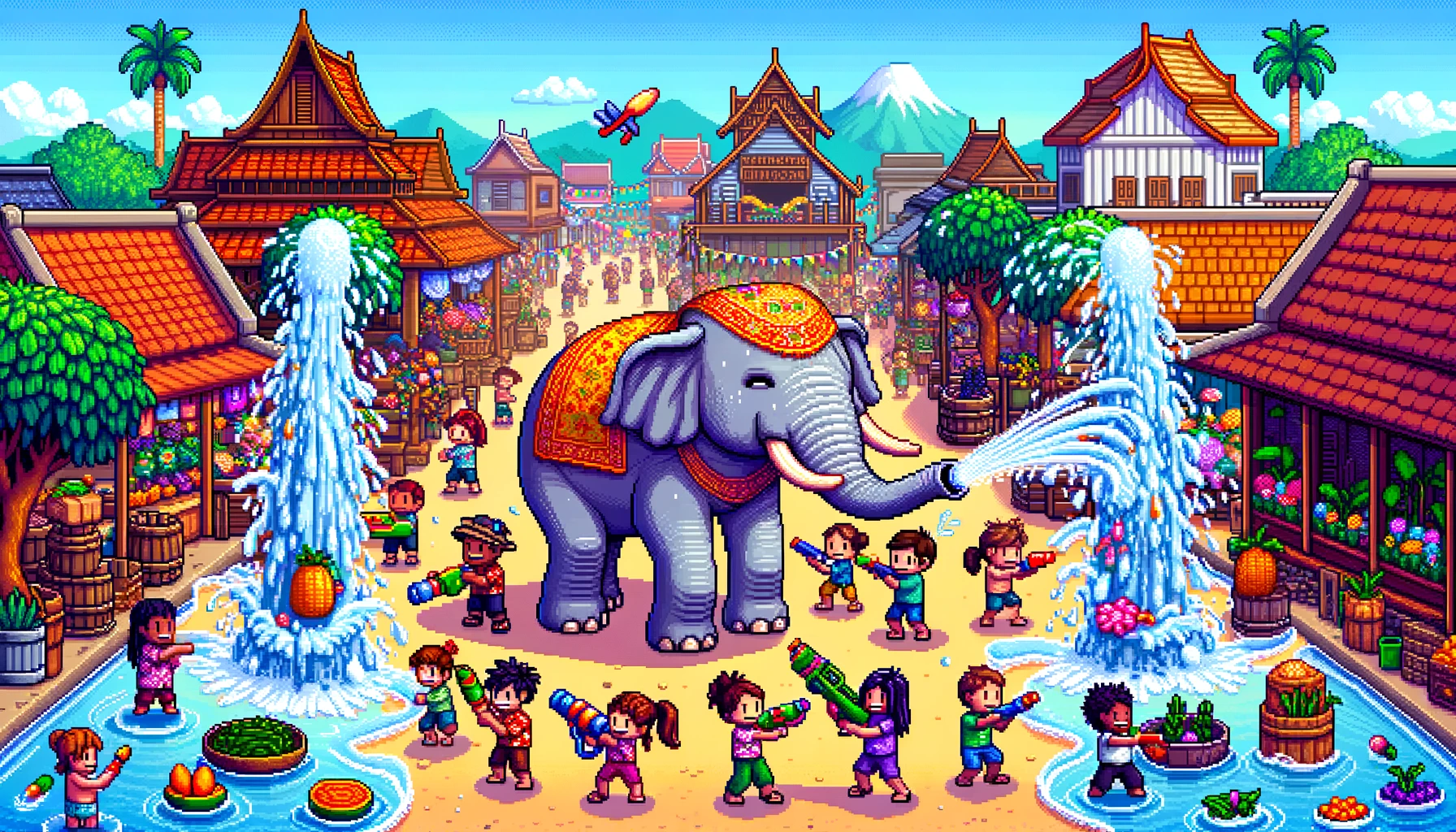
What is Songkran Festival?
The celebration of Songkran is rooted in Buddhist traditions, with many people visiting temples to pray and offer food to monks. They also clean Buddha images in temples and at home with water, which is believed to bring good luck and prosperity. Another important tradition during Songkran is paying respect to elders, including family members, friends, and neighbors, by pouring water gently over their hands.
The throwing and splashing of water in the streets, which has become synonymous with Songkran in the eyes of many, symbolizes the cleansing aspect of the festival. It's a time of joy and community, where people come together to celebrate, enjoy traditional foods, and participate in various cultural activities.
What does Songkran mean?
The word "Songkran" comes from Sanskrit, meaning '(astronomical) passage'. In the context of the festival, it refers to the passing of the sun, moon, and other planets into a new zodiacal orbit, marking the beginning of the new solar year.
When is Songkran?
Songkran is on April 13th, and is celebrated annually from April 13 to April 15, unless the dates are modified by the Thai government.
Songkran dates in 2024, 2025, 2026
| Year | Date | Day | Holiday |
|---|---|---|---|
| 2024 | 13 Apr to 16 Apr | Sat to Tue | Songkran Festival |
| 2025 | 13 Apr to 16 Apr | Sun to Wed | Songkran Festival |
| 2026 | 13 Apr to 15 Apr | Mon to Wed | Songkran Festival |
Songkran dates in past
| Year | Date | Day | Holiday |
|---|---|---|---|
| 2023 | 13 Apr to 16 Apr | Thu to Sun | Songkran Festival |
| 2022 | 13 Apr to 15 Apr | Wed to Fri | Songkran Festival |
| 2021 | 12 Apr to 15 Apr | Mon to Thu | Songkran Festival |
| 2020 | Cancelled | - | Songkran Festival |
| 2019 | 13 Apr to 16 Apr | Sat to Tue | Songkran Festival |
| 2018 | 12 Apr to 16 Apr | Thu to Mon | Songkran Festival |
| 2017 | 13 Apr to 17 Apr | Thu to Mon | Songkran Festival |